 Looking at selling your holiday home after years of welcoming paying guests? Whether you’re selling your treasured property to move on to pastures new or ready to retire from holiday letting, there are a few things to remember when it comes to putting your holiday home on the market as a going concern.
Looking at selling your holiday home after years of welcoming paying guests? Whether you’re selling your treasured property to move on to pastures new or ready to retire from holiday letting, there are a few things to remember when it comes to putting your holiday home on the market as a going concern.
Consider timing when selling your holiday home
Having provided self-catering accommodation to the tourism trade you’ll know how important the peak season is to your holiday letting business, so it’s essential you take this into account when it comes to selling your holiday home to any potential buyer.
Putting your property on the market in the middle of the summer can be problematic; how will people be able to view the property when it’s occupied? It can also mean that by the time the deal is done they’re into the winter months, and a further six months until the peak season (and revenue) rolls into town again.
Ensure you give yourself and potential buyers plenty of time to exchange contracts and get prepared for the peak letting season. Talk to your holiday letting agency and discuss how you can work together to sell your home as a going concern. Speak to local estate agents in order to find out when the most popular and appropriate times are to sell holiday homes in the area.
Property information
Marketing your holiday home correctly could be the key to maximising the interest you’re able to gain.
Alongside property specifics, we recommend creating an information pack with a break down of the business’ ins and outs, especially if you’re selling as a going concern.
What to include in the pack?
Consider the types of information a buyer would need in order to make an informed decision:
- How much rental income do you receive per year?
- When is your main season?
- How many of your visitors return year on year? Particularly significant on any marketing expenditure that needs to be made in the future.
- Where do bookings come from? Is there a successful existing relationship with an agent that needs to be continued?
- Promotions: have you offered any discounts during the quieter months or even peak season?
Taxes and legislation
When it comes to selling your holiday home you’ll need to be fully aware of any taxes and tax-relief schemes that could apply to you. These could include Capital Gains Tax, Entrepreneur’s Relief if terminating your holiday home business, or Roll Over Relief if taking the business elsewhere and your holiday home is classed as a Furnished Holiday Let (FHL).
Research thoroughly with your accountant to ensure you’re fully clued up before you make that important decision to sell!
Also be aware that buyers will be paying an additional 3% in stamp duty from April 2016.
Presentation
As obvious as it may seem, presentation is key when it comes to selling your holiday home. Potential buyers will not only be looking at the property for themselves, but more importantly on behalf of their visitors.
Welcoming viewings after a long summer season when your holiday home is feeling and looking weary mightn’t do your property justice, so if it does require maintenance or a lick of paint, ensure these tasks are completed before putting it on the market.
Specialist holiday home insurance
If selling as a going concern, potential buyers will want to know about the property’s insurance history. Never made any claims? By highlighting this, it provides reassurance about the holiday home and your visitors. If you have had claims for flooding then you’ll be required to declare those to the new owners.
Once the property is about to change hands we’re able to make all of the adjustments to your holiday home insurance to ensure you and your buyers have one less item to worry about. We would be very happy to provide quotations for prospective buyers so please remember to refer them to us. If you’re reading this with intention of buying a holiday cottage then you may find the following article of interest:
Boshers offer specialist holiday home insurance to owners across the UK. For more information on how a specialist insurer can help and support you if you’re buying a holiday cottage to let, please give us a call on 01237 429444.



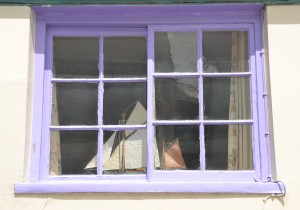 The tourism industry is now worth more than £137 billion to the UK economy and with the latest Census figures showing that more than 1.6 million people in England now own a second home, could you be ready to join the queue of people buying a holiday cottage and welcoming guests through their doors?
The tourism industry is now worth more than £137 billion to the UK economy and with the latest Census figures showing that more than 1.6 million people in England now own a second home, could you be ready to join the queue of people buying a holiday cottage and welcoming guests through their doors?
 With Christmas and New Year’s Eve edging ever closer, now may be the time of year that you consider providing some complimentary drinks for your guests as a gesture of seasonal goodwill.
With Christmas and New Year’s Eve edging ever closer, now may be the time of year that you consider providing some complimentary drinks for your guests as a gesture of seasonal goodwill.
 Most holiday homeowners who look after their own bookings will have taken hundreds of reservations from happy guests over the years, but some may not be aware of the legal contract they are forming each and every time they accept a booking, and the legalities they should have in place.
Most holiday homeowners who look after their own bookings will have taken hundreds of reservations from happy guests over the years, but some may not be aware of the legal contract they are forming each and every time they accept a booking, and the legalities they should have in place.

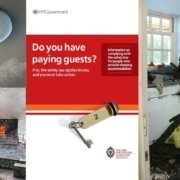
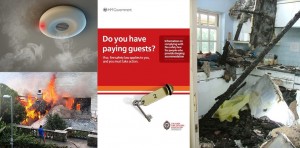 There are many different ways in which a fire could start in your holiday home. Having an understanding of the risks that fire poses to your property and your guests is vital to ensuring a safe stay in your cottage and complying with Fire Safety Law for Holiday Letting.
There are many different ways in which a fire could start in your holiday home. Having an understanding of the risks that fire poses to your property and your guests is vital to ensuring a safe stay in your cottage and complying with Fire Safety Law for Holiday Letting.
 Technology continues to revolutionise and push the boundaries of how we go about our every day lives. So how can we use it to reduce costs, to add value and encourage visitors to our holiday homes, all without costing the earth?
Technology continues to revolutionise and push the boundaries of how we go about our every day lives. So how can we use it to reduce costs, to add value and encourage visitors to our holiday homes, all without costing the earth?
 Landlords including holiday letting owners are under scrutiny because the Revenue estimates that £500m is lost every year through underpayment of tax on rental income and undeclared capital gains on second properties.
Landlords including holiday letting owners are under scrutiny because the Revenue estimates that £500m is lost every year through underpayment of tax on rental income and undeclared capital gains on second properties.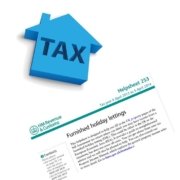
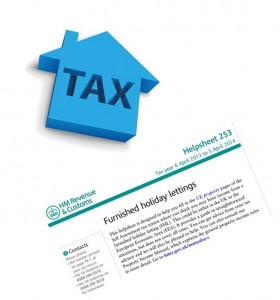 When you rent a property it is usually treated as a form of investment activity rather than a trade. For example, if you had a job and owned a second home which you let on a shorthold tenancy agreement, the property would for tax purposes often be seen as you owning it as an investment, rather than an occupation which would provide you with profit.
When you rent a property it is usually treated as a form of investment activity rather than a trade. For example, if you had a job and owned a second home which you let on a shorthold tenancy agreement, the property would for tax purposes often be seen as you owning it as an investment, rather than an occupation which would provide you with profit.
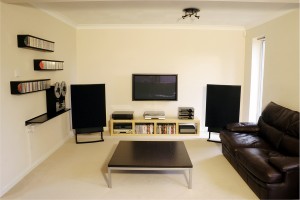 Do your guests ever play music through a radio, TV, CD or MP3 player you’ve supplied? If they do you may need a PRS (Performing Rights Society) Licence. We explain what this is and when you may need one as a holiday homeowner. For example are you aware that the PRS do not charge a licence fee for single-unit holiday lets meeting certain criteria? Learn more about music and film licences for your holiday home and we’ll try and answer your FAQ’s.
Do your guests ever play music through a radio, TV, CD or MP3 player you’ve supplied? If they do you may need a PRS (Performing Rights Society) Licence. We explain what this is and when you may need one as a holiday homeowner. For example are you aware that the PRS do not charge a licence fee for single-unit holiday lets meeting certain criteria? Learn more about music and film licences for your holiday home and we’ll try and answer your FAQ’s.